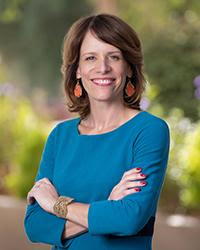From Dean Sara - October 8, 2021

Social justice has been part of the core mission of the Boyd School of Law since we opened our doors over 20 years ago. Through the work of its Community Service Program, the Thomas & Mack Legal Clinic, and student organizations whose missions reflect a commitment to civil rights, the law school has embraced its obligation to advocate for substantive change throughout its first two decades. And while social justice and police reform have recently become larger topics of national conversation, many of our students and professors have focused their studies and scholarship on these issues for a long time.
Drawing on that faculty expertise, Boyd became one of the first law schools to create a course that directly addresses policing, racial inequality, and criminal justice. Law and Inequality: Policing, Protest, and Reform, a mandatory one-credit course launched in the fall of 2020, provides students with an introductory legal and historical context for recent mass protests and a framework for understanding the reform proposals that have emerged from them. Criminal prosecutions, civil rights lawsuits, and federal investigations of police misconduct are all difficult to pursue because of the legal rules that govern each area and efforts to hold police accountable for violence against Black people have been going on for centuries. Recognizing and learning about this history helps our students understand both current protests and the more sweeping calls for change around the country.
This course is team-taught by members of our faculty with expertise in criminal law and procedure, racial justice, civil rights, and policing, and I am grateful to Professors Stewart Chang, Frank Rudy Cooper, Eve Hanan, Joan Howarth, and Addie Rolnick for creating and developing the course and to the many other members of the faculty who facilitate group discussion among students in the class. Policing and criminal justice reform are not new issues in the struggle for civil rights and this course seeks to empower our students with the knowledge and skills to effectuate change in their own communities.